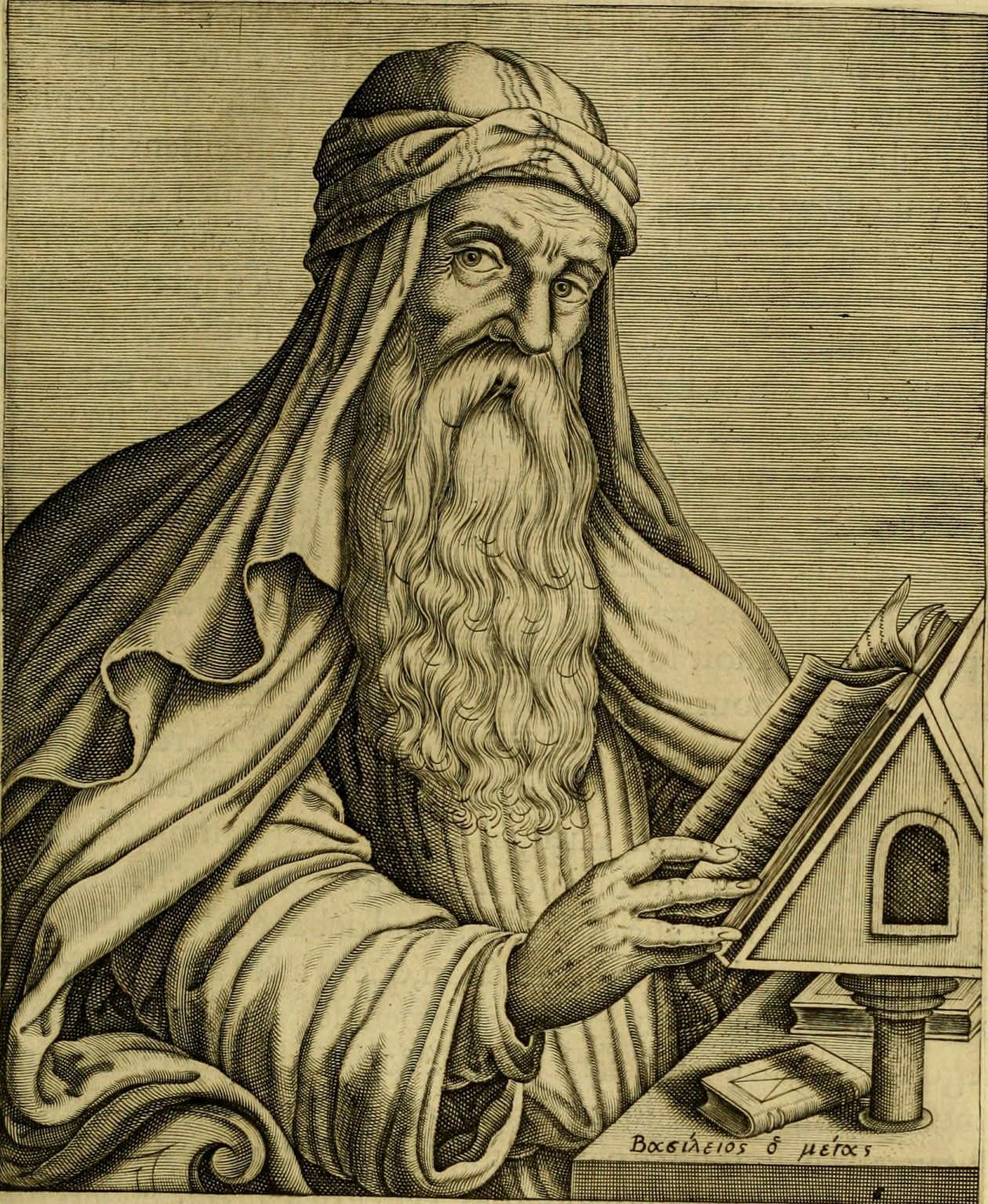Rev. José Mario O. Mandía
jmom.honlam.org
In the middle of the fourth century, there arose in Cappadocia in Asia Minor (present-day Turkey) three great theologians of the Eastern Church: Basil of Caesarea in Cappadocia, his brother Gregory of Nyssa and friend Gregory of Nazianzus. They were trained in classical culture and crowned the work Athanasius had been doing to refute Arianism. The Western Church counts Saint Basil and Saint Gregory of Nazianzus among the Great Eastern Fathers, together with Saint Athanasius and Saint John Chrysostom.
Let us first focus our attention on Saint Basil, also known as Basil the Great. He was an outstanding pastor, defender and teacher of the Faith, Father of monasticism in Eastern Christianity, reformer of the liturgy and worker for the poor and underprivileged.
Basil was born around 330 A.D. to a family of holy people. His parents, Basil the Elder and Macrina, were martyred during the persecution of Maximinus Galerius (305-314). Basil had nine siblings and aside from him, two others (Macrina and Gregory) are also honored as saints in the Western Church. Basil, Gregory, and their brother Peter all became bishops. Peter and their sister Theobia are also counted as saints in the Eastern Church.
Basil had a promising career as a rhetorician, but at one point, he experienced a conversion. He wrote in his Letters (223, 2): “I had wasted much time on follies and spent nearly all my youth in vain labors and devotion to the teachings of a wisdom that God had made foolish (I Corinthians 1:20). Suddenly, I awoke as out of a deep sleep. I beheld the wonderful light of the Gospel truth, and I recognized the nothingness of the wisdom of the princes of this world that was come to naught (I Corinthians 2:6). I shed a flood of tears over my wretched life and I prayed for a guide who might form in me the principles of piety.”
He received baptism and traveled to Egypt, Palestine, Syria and Mesopotamia to meet the most famous ascetics. When he returned, he gave away his fortune to the poor. Others soon joined him and he went on to found some monasteries.
“Attracted by Christ, Basil began to look and listen to him alone (cf. Moralia, 80, 1). He devoted himself with determination to the monastic life through prayer, meditation on the Sacred Scriptures and the writings of the Fathers of the Church, and the practice of charity (cf Letters 2, 22), also following the example of his sister, St Macrina, who was already living the ascetic life of a nun. He was then ordained a priest and finally, in the year 370, Bishop of Caesarea in Cappadocia in present-day Turkey” (Benedict XVI, General Audience, 4 July 2007).
While dedicating himself to prayer and meditation, Saint Basil also managed to provide service to souls. “He encouraged the foundation of numerous ‘fraternities’, in other words, communities of Christians consecrated to God, which he visited frequently (cf. Gregory of Nazianzus, Oratio 43, 29, in laudem Basilii)” (Benedict XVI, General Audience, 4 July 2007).
Saint Benedict considered Basil his teacher (cf. Rule 73, 5) and based the rules that he wrote on Saint Basil’s teachings. Pope Benedict comments: “Indeed, Basil created a very special monasticism: it was not closed to the community of the local Church but instead was open to it. His monks belonged to the particular Church; they were her life-giving nucleus and, going before the other faithful in the following of Christ and not only in faith, showed a strong attachment to him – love for him – especially through charitable acts. These monks, who ran schools and hospitals, were at the service of the poor and thus demonstrated the integrity of Christian life” (Benedict XVI, General Audience, 4 July 2007).
Saint Basil also provided dwellings for the poor and hospices for travelers and strangers which created a ‘city of mercy’ which was called ‘Basiliade’ in his honor. “This was the origin of the modern hospital structures where the sick are admitted for treatment” (Benedict XVI, General Audience, 4 July 2007).
As for his contributions to piety and the liturgy, Pope Benedict says: “Indeed, he has bequeathed to us a great Eucharistic Prayer [or anaphora] which takes its name from him and has given a fundamental order to prayer and psalmody: at his prompting, the people learned to know and love the Psalms and even went to pray them during the night (cf. Basil, In Psalmum 1, 1-2: PG 29, 212a-213c). And we thus see how liturgy, worship, prayer with the Church and charity go hand in hand and condition one another” (General Audience, 4 July 2007).
As already mentioned above, Basil upheld the teachings of Athanasius, preaching the divinity of Jesus Christ and of the Holy Spirit.
In his love for Christ and for his Gospel, the great Cappadocian also strove to mend divisions within the Church (cf. Letters, 70, 243), doing his utmost to bring all to convert to Christ and to his word (cf. De Iudicio 4: PG 31, 660b-661a), a unifying force which all believers were bound to obey (cf. ibid. 1-3: PG 31, 653a-656c).
Pope Benedict concludes: “In 379 A.D. Basil, who was not yet 50, returned to God ‘in the hope of eternal life, through Jesus Christ Our Lord’ (De Baptismo, 1, 2, 9). He was a man who truly lived with his gaze fixed on Christ. He was a man of love for his neighbor. Full of the hope and joy of faith, Basil shows us how to be true Christians” (General Audience, 4 July 2007).


 Follow
Follow


